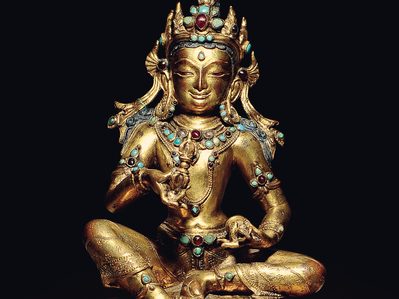Offering service
By B. T.

Venerable Thubten Chodron had written B. T. that, at Sravasti Abbey, in addition to doing our meditation practice we also work very hard. But instead of calling it “work,” we call it “offering service.” Just changing the name makes us see some activities in a totally different way, and seeing them differently makes us experience them in a new way. B.T. replied:
What you wrote about “offering service” was interesting. I put that same principle into use today. When we go to the dining hall, there are five carts that we have to bring back with us for the guys who have just gotten here and still eat in their cell. Usually it is a game trying not to be one of the people that they choose to bring the carts back. When you do get picked, usually someone will joke or tease you because you got caught.
Today I just put it in my head that I was doing a service for the guys that are still locked up and who are not as fortunate as me to be able to go and get my own food. I didn’t see it as a punishment and it didn’t bother me at all to push the carts back. In fact, I brought them back at both lunch and supper. I’ve never done that before. I saw that our trying to avoid pushing the carts isn’t even about the work. It’s not like it is hard. It is just the idea that by not doing it, we are somehow getting over, that we are getting away with something. That is a pretty weird way of thinking.
Venerable Thubten Chodron:
Here’s the verse that is said every morning at the Abbey to help us remember our motivation for working together:
We are grateful for the opportunity to offer service to the Buddha, Dharma, and Sangha and to sentient beings. While working, differences in ideas, preferences, and ways of doing things from our companions may arise. These are natural and are a source of creative exchange; our minds don’t need to make them into conflicts. We will endeavor to listen deeply and communicate wisely and kindly as we work together for our common goal. By using our body and speech to support the values we deeply believe in—generosity, kindness, ethical discipline, love, and compassion—we will create great positive potential which we dedicate for the enlightenment of all beings.
Incarcerated people
Many incarcerated people from all over the United States correspond with Venerable Thubten Chodron and monastics from Sravasti Abbey. They offer great insights into how they are applying the Dharma and striving to be of benefit to themselves and others in even the most difficult of situations.


